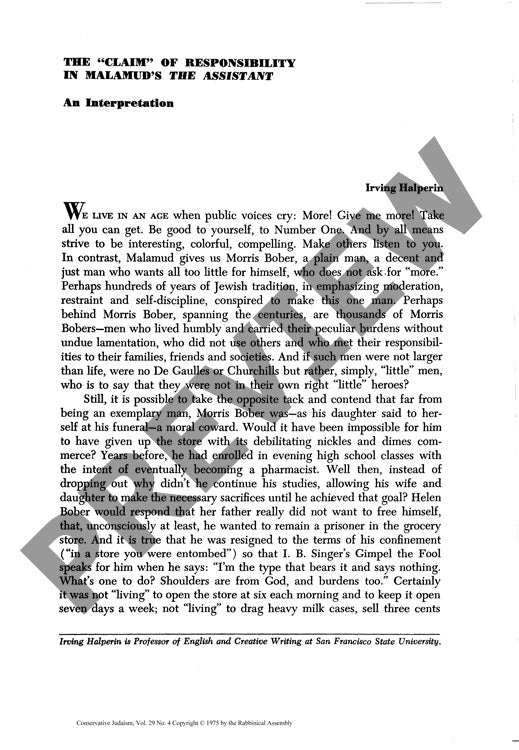The Claim of Responsibility in Malamuds
Couldn't load pickup availability
Does moral passivity negate ethical heroism? In Bernard Malamud's *The Assistant*, protagonist Morris Bober emerges as a figure caught between conflicting interpretations - either an exemplar of Jewish ethical principles or a passive victim unable to transcend his circumstances. Through close textual analysis and comparison with other literary figures, a more nuanced portrait emerges: one where Bober's apparent resignation masks profound spiritual achievement. His adherence to Torah principles, maintenance of honest business practices, and rejection of violence despite personal suffering demonstrate the active moral choice inherent in seeming passivity. Drawing upon Jewish philosophical traditions, particularly Martin Buber's concept of being "claimed" by others and responding "in responsibility," the analysis reveals how Bober's willingness to "suffer for" Frank Alpine and his commitment to treating others with dignity represent transformative ethical action. When contextualized within broader Jewish literary traditions and compared with other Jewish-American characters' responses to violence, Bober's unwavering ethical stance reveals itself not as weakness but as heroic grace. Though he fails by worldly measures, Bober's acceptance of responsibility for others establishes him as a *mentsch* who fully realizes his obligations as both Jew and human being.

More Information
-
Physical Description
-
Publication Information
Published
ISBN
-
Publication Credits
Irving Halperin

